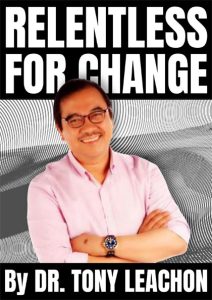
Discipline is destiny but regulation is equally important to stop obesity epidemic
 ACCORDING to a survey between July 2021 and June 2022, 38.6 percent of adults aged 20 and 59 in the Philippines were diagnosed as obese or overweight. Obesity increases the risk for severe diseases and health conditions such as hypertension, stroke, and type 2 diabetes.
ACCORDING to a survey between July 2021 and June 2022, 38.6 percent of adults aged 20 and 59 in the Philippines were diagnosed as obese or overweight. Obesity increases the risk for severe diseases and health conditions such as hypertension, stroke, and type 2 diabetes.
Obesity and Diabetes.
The condition most strongly influenced by body weight is type 2 diabetes. In the Nurses’ Health Study, which followed 114,000 middle-age women for 14 years, the risk of developing diabetes was 93 times higher among women who had a body mass index (BMI) of 35 or higher at the start of the study, compared with women with BMIs lower than 22. Weight gain during adulthood also increased diabetes risk, even among women with BMIs in the healthy range.
Obesity harms virtually every aspect of health, from shortening life and contributing to chronic conditions such as diabetes and cardiovascular disease to interfering with sexual function, breathing, mood, and social interactions. Obesity isn’t necessarily a permanent condition.
Excess weight, especially obesity, diminishes almost every aspect of health, from reproductive and respiratory function to memory and mood. Obesity increases the risk of several debilitating, and deadly diseases, including diabetes, heart disease, and some cancers. It does this through a variety of pathways, some as straightforward as the mechanical stress of carrying extra pounds and some involving complex changes in hormones and metabolism. Obesity decreases the quality and length of life, and increases individual, national, and global healthcare costs.
The good news, though, is that weight loss can curtail some obesity-related risks. Losing as little as 5 to 10 percent of body weight offers meaningful health benefits to people who are obese, even if they never achieve their “ideal” weight, and even if they only begin to lose weight later in life.
Healthier restaurant menus, healthier Filipinos.
Policy and environmental changes are the foundation of OBESITY PREVENTION. Our goal is to inform and empower people with science-based information about what can and must be done to prevent adult and childhood obesity; and ultimately, to turn back the obesity epidemic’s global spread.
Many factors contribute to rising rates of obesity in children and adults. Among them: The abundance of low-priced, high-calorie processed foods and sugary drinks; Incessant food marketing to drive people to eat more, even when they are full; and technology advances that reduce the need for daily physical activity.
Yet what sometimes gets lost in the discussion of our worldwide weight problem is one simple fact: Obesity is preventable, and we can turn around the obesity epidemic by collaboratively creating an environment where the default option is the healthy choice.
We should have a choice. We can enjoy eating but we need to know the calories and content of salt , sugar and fats of the food that we eat.
Fast food chains and other restaurants should start publishing calorie counts of their food items, according to Dr. Tony Leachon, past president of the Philippine College of Physicians.
As a health reform advocate, I have proposed establishment of calorie counter to help curb obesity and other metabolic disorders among Filipinos. Nutrition authorities recently expressed concern that more Filipinos are becoming fat, renewing calls for balanced diet and exercise. Around 27 million Filipinos are reportedly overweight or obese based on latest figures.
We must address obesity problem in the Philippines through education and regulation.
Calorie counter in the fast food chain and other restaurant business. We must provide healthy choices especially to those with vulnerable conditions.
I propose the inclusion of veggies and fruits in burger chains and other fast food restaurants. Healthier food items will also help reduce obesity and other lifestyle diseases. Cost will go down if with increase in market demand . This will reduce obesity and other lifestyle diseases, help in climate change program , provide farmers a means of sustainable livelihood – they will plant and earn money. Think about it.
Food labeling : UK as a best practice benchmark
The laws around nutrition labelling in the UK outline what information must be provided to you, as a consumer, when buying food, and how that information must be presented. The majority of pre-packed products by law must provide a nutrition label on the back of pack.
Front-of-pack labelling in the UK is voluntary but most of the major supermarkets and many food manufacturers provide this and use the government’s recommended format – red, amber, green colour-coding and percentage reference intakes (RIs) – or as you may better recognise it – traffic light labelling.
They will allow you to make comparisons between products that are high, medium or low in fat, saturated, salt and sugar.
Looking at the nutrition information on food labels can help you make healthier choices.
What are food labels and why use them?
Food labels provide a lot of useful information about what foods and drinks contain, provided you know where to find the information you’re looking for. The laws around food labelling in the UK have largely been retained from European Union (EU) legislation on the provision of food information to consumers. They outline what information must be provided to you, as a consumer, when buying food, and how that information must be presented. Food labelling is required to be clear, easy to read and not misleading, so that you can be better informed about the foods and drinks you are going to buy.
Most prepacked foods in the UK must provide nutritional information on the label.
STOIC PRINCIPLES
It’s a philosophy designed to make us more resilient, happier, more virtuous and more wise–and as a result, better people, better parents and better professionals. Stoicism has been a common thread though some of history’s great leaders. It has been practiced by Kings, presidents, artists, writers and entrepreneurs.
We can’t choose what happens to us, but we decide how to respond. The Stoics said: Amor fati (a love of fate). Don’t just accept what happens to you, but like it too. Everything happens for a reason.
According to Ryan Holiday , a Stoic doesn’t control the world, but they control always how they respond to the world. So it’s a really great philosophy if you’re doing something ambitious.
Being stoic is being calm and almost without any emotion. When you’re stoic, you don’t show what you’re feeling and you also accept whatever is happening. The noun stoic is a person who’s not very emotional. The adjective stoic describes any person, action, or thing that seems emotionless and almost blank.
Holiday said ,” Don’t seek to have events happen as you wish, but wish them to happen as they do happen, and all will be well with you.”
To me, a Stoic is someone who takes the time to view the world logically and objectively, and accept what they see as it comes. They then accept responsibility for how they respond to what they experience and do their best to act with virtue. In this way the Stoic becomes wiser, more temperate, just and courageous. of plenty, because none of us know what the future holds- only that plenty never lasts.
If we want to succeed in our health goals we need to be relentless , innovative , and adapt a stoic mindset to carve out ourselves from the chaos and clutter of this world.
To quote :
“YOU HAVE POWER OVER YOUR MIND, NOT OUTSIDE EVENTS. REALIzE THIS, AND YOU WILL FIND STRENGTH.”
— MARCUS AURELIUS
Anthony C. Leachon, M. D.
Independent Health Reform Advocate
Past President ,
Philippine College of Physicians
Department of Internal Medicine
Manila Doctors Hospital


















